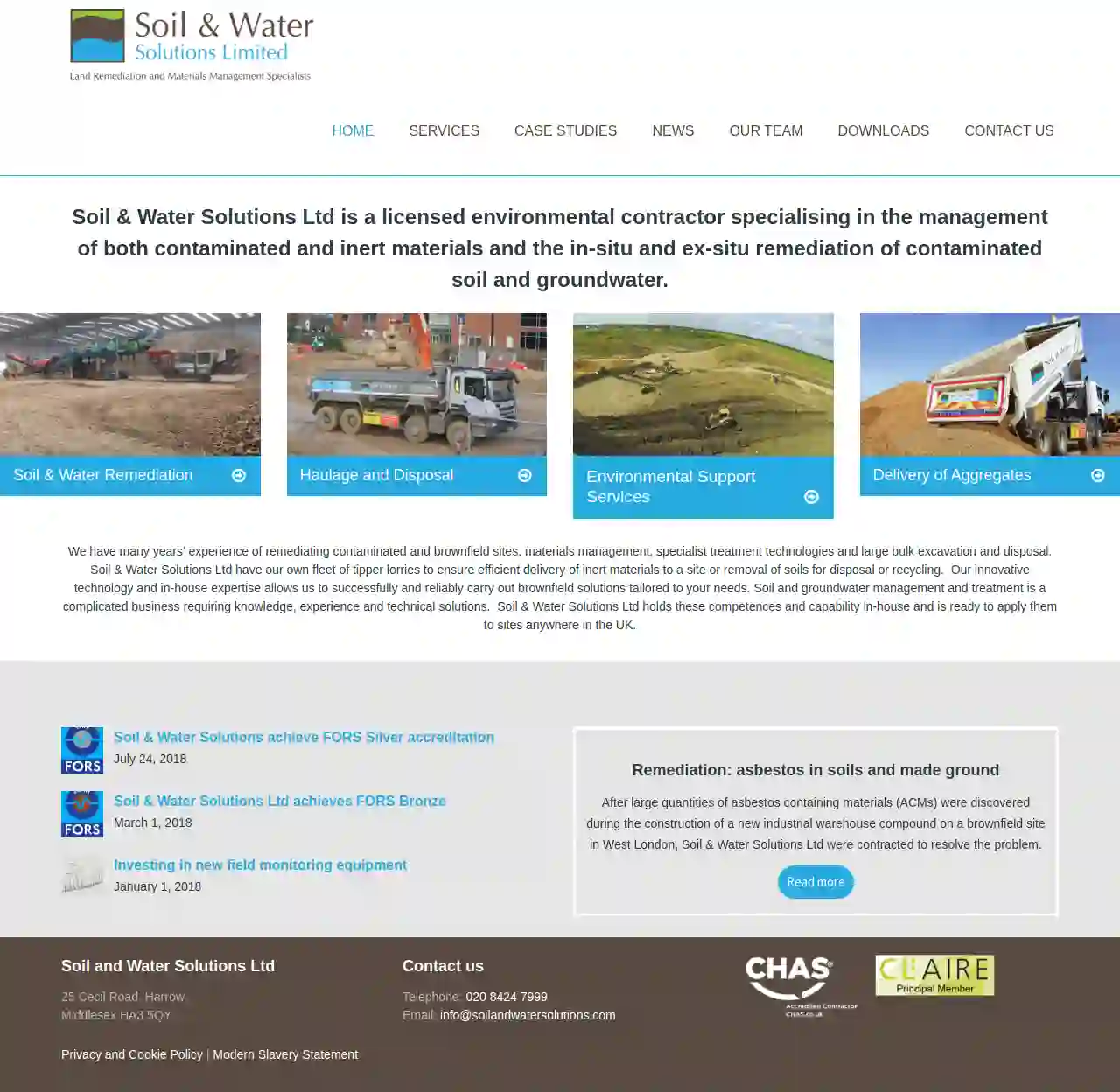Excavation Contractors Harrow
Find top Excavation Contractors in Harrow
Receive up to 3 Excavating Contractors quotes for your project today! Compare profiles, reviews, accreditations, portfolio, etc... and choose the best offer.
- Em
Emporium Design Ltd
4.820 reviewsHarrow, GB- Services
- Why Us?
Get Quote 
Prodig Utilities
12 Imperial Way, Harrow, HA3 9SW, GBUnderground utilities contractors Prodig Utilities Ltd is a company specialized in excavation services for the installation and maintenance of utility networks. We are dedicated to providing high-quality services with attention to detail and a focus on health and safety. About Us We are a team of experienced and skilled underground utility contractors providing high-quality services to clients across London, committed to delivering top-quality results while maintaining a safe and respectful work environment for everyone involved. “Our company was founded on the principles of integrity, professionalism and a commitment to excellence in everything we do.” Our Services We are a provider of reliable and efficient underground utility installation services for residential, commercial and industrial clients. At our company, we understand the importance of reliable and safe utilities, which is why we are committed to delivering high-quality services that meet all local and national regulations.
- Services
- Why Us?
- Gallery
Get Quote- Ha
Harrow Maintenance
4.52 reviewsHarrow, GB- Services
- Why Us?
Get Quote - Mu
Munnelly Support Services
4.448 reviewsHarrow, GB- Services
- Why Us?
Get Quote 
Soil and Water Solutions Ltd
2.52 reviews25 Cecil Road, Harrow, Middlesex, HA3 5QY, GBSoil & Water Solutions Ltd is a licensed environmental contractor specializing in the management of both contaminated and inert materials and the in-situ and ex-situ remediation of contaminated soil and groundwater. We have many years’ experience of remediating contaminated and brownfield sites, materials management, specialist treatment technologies and large bulk excavation and disposal. Soil & Water Solutions Ltd have our own fleet of tipper lorries to ensure efficient delivery of inert materials to a site or removal of soils for disposal or recycling. Our innovative technology and in-house expertise allows us to successfully and reliably carry out brownfield solutions tailored to your needs. Soil and groundwater management and treatment is a complicated business requiring knowledge, experience and technical solutions. Soil & Water Solutions Ltd holds these competences and capability in-house and is ready to apply them to sites anywhere in the UK.
- Services
- Why Us?
- Gallery
Get Quote- SE
SEC Roofing Ltd.
1Harrow, GB- Services
- Why Us?
Get Quote - Ha
Harrowe Construction Ltd
1Harrow, GB- Services
- Why Us?
Get Quote - Co
Construction Solutions Ltd
1Harrow, GB- Services
- Why Us?
Get Quote - TS
TS Site Investigation LTD
53 reviewsHarrow, GB- Services
- Why Us?
Get Quote - Sa
Salverda Well Co
4.67 reviewsHarrow, GB- Services
- Why Us?
Get Quote
Over 11,537+ Excavation Businesses onboarded
Our excavation companies operate in Harrow and surroundings!
ExcavationHQ has curated and vetted Top Excavation Contractors in and around Harrow. Find a reliable business today.
Frequently Asked Questions About Excavation Contractors
- Project Size and Scope: Larger, more complex excavations naturally take longer.
- Soil Conditions: Rocky or challenging soil types can slow down progress.
- Site Accessibility: Limited access might require more time for maneuvering equipment and hauling materials.
- Weather: Inclement weather can cause delays.
- Permitting and Inspections: Waiting for permits or inspections can extend the timeline.
- Clearly Define the Scope: Outline the project's goals, including the excavation area, depth, grade, and intended use.
- Obtain Necessary Permits: Research and acquire any required permits from your local authorities.
- Mark Utility Lines: Contact your utility companies to locate and mark underground utilities to prevent damage.
- Communicate with Neighbors: Inform your neighbors about the project's timeline and potential noise or disruptions.
- Prepare the Site: Clear any obstacles, such as vegetation, furniture, or structures, from the excavation area.
- Discuss Safety Protocols: Review safety procedures with the contractor to ensure a safe work environment.
How long does an excavation project take?
What is the difference between cut and fill excavation?
Cut: Involves excavating soil from an area where the existing grade is higher than the desired grade.
Fill: Refers to using the excavated soil ('cut' material) to raise the grade in an area where the existing grade is lower than desired.
This method minimizes the need to import or export soil, reducing costs and environmental impact. It's commonly used for site preparation, road construction, and landscaping.
What should I do before excavation starts?
What is the difference between topsoil and subsoil?
Topsoil: The uppermost layer, typically rich in organic matter, nutrients, and microorganisms. It's essential for plant growth and is often darker in color.
Subsoil: The layer beneath the topsoil, containing less organic matter and generally denser. It provides support for roots but is less fertile than topsoil.
During excavation, topsoil is often removed and preserved separately for later use in landscaping, while subsoil is typically used for backfilling or other less demanding applications.
How long does an excavation project take?
- Project Size and Scope: Larger, more complex excavations naturally take longer.
- Soil Conditions: Rocky or challenging soil types can slow down progress.
- Site Accessibility: Limited access might require more time for maneuvering equipment and hauling materials.
- Weather: Inclement weather can cause delays.
- Permitting and Inspections: Waiting for permits or inspections can extend the timeline.
What is the difference between cut and fill excavation?
Cut: Involves excavating soil from an area where the existing grade is higher than the desired grade.
Fill: Refers to using the excavated soil ('cut' material) to raise the grade in an area where the existing grade is lower than desired.
This method minimizes the need to import or export soil, reducing costs and environmental impact. It's commonly used for site preparation, road construction, and landscaping.
What should I do before excavation starts?
- Clearly Define the Scope: Outline the project's goals, including the excavation area, depth, grade, and intended use.
- Obtain Necessary Permits: Research and acquire any required permits from your local authorities.
- Mark Utility Lines: Contact your utility companies to locate and mark underground utilities to prevent damage.
- Communicate with Neighbors: Inform your neighbors about the project's timeline and potential noise or disruptions.
- Prepare the Site: Clear any obstacles, such as vegetation, furniture, or structures, from the excavation area.
- Discuss Safety Protocols: Review safety procedures with the contractor to ensure a safe work environment.
What is the difference between topsoil and subsoil?
Topsoil: The uppermost layer, typically rich in organic matter, nutrients, and microorganisms. It's essential for plant growth and is often darker in color.
Subsoil: The layer beneath the topsoil, containing less organic matter and generally denser. It provides support for roots but is less fertile than topsoil.
During excavation, topsoil is often removed and preserved separately for later use in landscaping, while subsoil is typically used for backfilling or other less demanding applications.